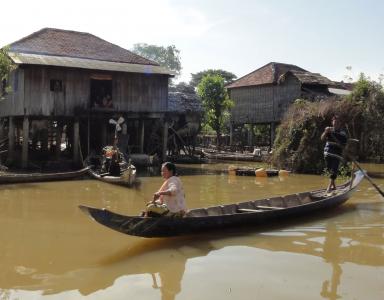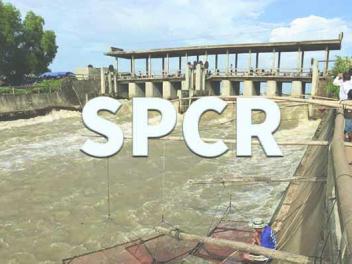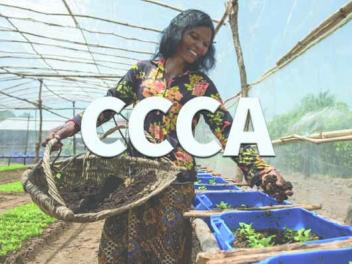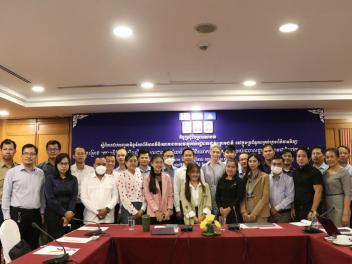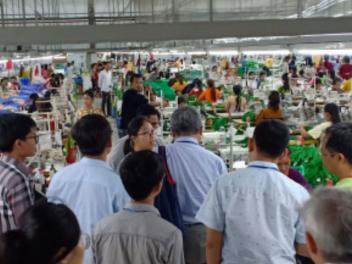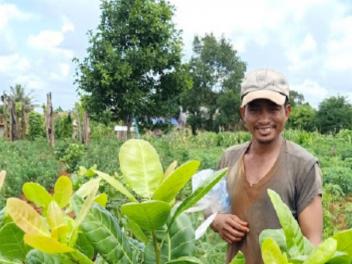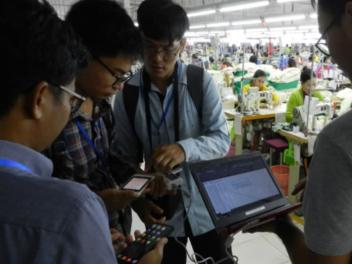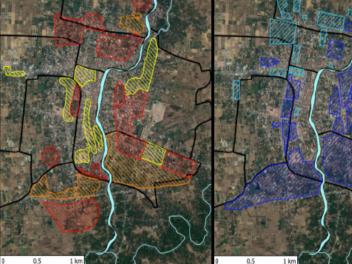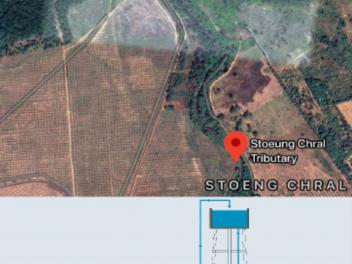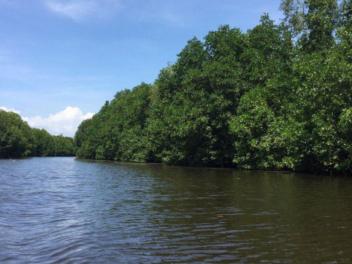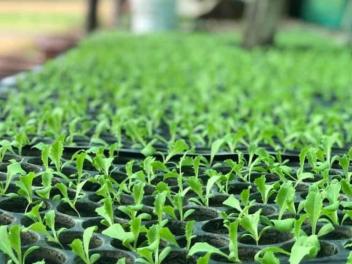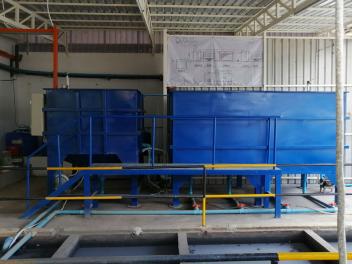More about Climate Change
Cambodia is highly vulnerable to climate change, ranking top twelve globally. Cambodia has exposed to disaster more frequently and severely as indicated by key facts as below:
- The 2002 drought affected over 2 million Cambodians throughout 8 provinces, significantly impacting their livelihoods (SNC, 2010);
- Loss and damage caused by 2009 typhoon Ketsana was estimated at US$ 132 million and resulted in 43 fatalities (NCDM, 2010);
- According to the International Disaster Database (EM-DAT), the natural disaster in 2011 resulted in economic losses to Cambodia of about 4.3% of its GDP (CCCSP, 2013);
- The severe floods of 2013 affected 1.8 million people across 20 provinces in Cambodia, causing losses and damages total of US$ 356.3 million (NCDM, 2013);
- The heatwave phenomena in 2016 profoundly affected water supply, agriculture, and livestock in most provinces in Cambodia.
Sector-wide, climate change poses the most significant challenges to the following national efforts in Cambodia:
- Food Security: Seasonal changes under climate change and variability are causing perturbations in the cropping calendars of smallholding farmers. Early commencement of the rainy seasons easily misleads farmers into sowing which eventually result in crop failures. Extreme events such as floods and droughts which are projected to increase in frequency and intensity are going to impact food security in Cambodia.
- Agriculture Production: The impacts of climate change on agriculture are of particularly significant to Cambodia because a large portion of the population is involved in smallholding and subsistence farming livelihoods, and agriculture constitutes the backbone of our economy. Agricultural practices in Cambodia are mostly rainfed systems which increase their vulnerability to a changing climate. We have witnessed severe floods and droughts that have caused a significant loss in agricultural productivity.
- National Development Target: Agricultural productivity is expected to increase by about 3-5% to meet national GDP growth targets. Climate change poses significant threats in achieving this target following the impacts of droughts, floods, pests and disease outbreaks likely to affect agricultural productivity. Increasing rice productivity which is a dominant stable, and required to increase rice export, will be affected by climate change. Fisheries which provide livelihoods and employment opportunities to people will also be affected.
- Public Health: The outbreaks of some diseases such as malaria and dengue fever linked to climate change, will pose significant challenges to Cambodia. Similarly, sanitation and pollution of freshwater, e.g. during flood events are likely to increase incidences of cholera and other water-borne diseases.
- Physical Infrastructures: The qualities of current infrastructures are not designed to cope with the intensity of climate change impacts we are experiencing today. We have witnessed damages caused by flooding to our roads, drainage structures, irrigation systems, and other connecting infrastructures such as bridges and culverts. Under heavy rainfall and flooding, embankments and slopes have been damaged by water erosion further rendering our road systems impassable for an extended period with a significant economic loss to the country. This is only going to get worse under future climate impacts predicted to be of higher intensity and with more frequent extreme events. Road systems that constitute a significant part of our economic development in facilitating people movement and the flow of goods and services both within the country and in the ASEAN will be affected by climate change.
Mandate
DCC is responsible for coordinating of the development and implementation of legal instruments, policy, strategic plans, action plans, programmes and projects to reduce greenhouse gas emissions and to adapt to climate change as well as for conducting monitoring and evaluation, and regular reporting.
Its specific duties are as follow:
- Develop draft legal instruments, policy, strategic plans, action plans and budget, promote collaboration with relevant stakeholders, build staff capacity of the department, manage finance, conduct internal monitoring, and manage administration relevant to the roles and duties of the department;
- Coordinate and implement legal instruments, policy, strategic plans, action plans, programmes and projects to mitigate greenhouse gases (GHGs) and adapt to climate change as well as conduct monitoring and evaluation, and reporting regularly;
- Coordinate the development and management of GHGs inventories, national reports, and deliver government commitments under United Nations Framework Convention on Climate Change (UNFCCC);
- Coordinate to provide technical support in GHG inventory by sources;
- Coordinate assessment of climate change vulnerability and opportunity;
- Strengthen partnerships and international cooperation to mobilize resources to respond to climate change;
- Propose fund development and management to support implementation of policy to respond to climate change;
- Design, develop and manage climate change information and knowledge management system;
- Disseminate government response to climate change to the public, development partners and international community;
- Perform duty as national focal point for international conventions, protocols, and agreements related to climate change;
- Coordinate with climate change focal point persons in relevant ministries and agencies;
- Develop monthly, quarterly, semi-annual, nine-monthly and annual reports of the department and the Secretariat; and Perform other tasks as assigned by NCSD’s Secretary General.
A Chronology of Cambodia's Efforts to Address Climate Change
Cambodia ratified the United Nations Framework Convention on Climate Change (UNFCCC) on 18 December 1995. The Convention entered into force for Cambodia on 17 March 1996.
The country began its first climate change related project in 1999, Cambodia's Climate Change Enabling Activity Project (CCEAP). This project was implemented by the Cambodian Ministry of Environment (MoE) with support from the United Nations Development Programme (UNDP) and the Global Environment Facility (GEF). The objective of this three-year project was to prepare the Initial National Communication of Cambodia to the UNFCCC. This was seen as the first step taken by the Government in implementing the UNFCCC in Cambodia. The project has assisted the country in building its climate change technical and institutional capacity and helped raise climate change awareness among institutions and individuals from the grass-root level to the high political level.
The project was then expanded into Phase 2 for an additional one year period in 2002. Phase 2 helped Cambodia expand and strengthen its climate change capacity by focusing on improving activity data and emission factors in land use change and forestry and agriculture sectors. These activities were selected due to the importance of these sectors in terms of economic development and greenhouse gas (GHG) emission/removal.
In August 2002, the Minister of Environment assumed the UNFCCC National Focal Point position. This was the only international environmental convention that has ministerial level focal point in Cambodia, highlighting the Government's recognition of the importance of and commitment to addressing climate change issues.
In June 2003, the Ministry of Environment established a separate office called Cambodia Climate Change Office (CCCO) as cited in its declaration No.195 dated on 23 June 2003. This office is responsible for all activities related to climate change.
In December 2002, MoE and UNEP Risoe Centre on Energy, Climate and Sustainable Development (URC) signed an agreement on Phase 1 implementation of a project called "Capacity Development for the Clean Development Mechanism (CD4CDM)", which was successfully completed in April 2003. The project is financially supported by the Netherlands' Ministry of Foreign Affairs via the United Nations Environment Programme (UNEP). Subsequently, CCCO started implementation of CD4CDM Phase 2 in July 2003. Phase 2 was expected to be completed in December 2005. The overall development objective of this program is to generate, in selected developing countries, a broad understanding and develop institutional capacity and human capacity to “fully participate as equal partners with developed countries in the formulation and implementation of the Clean Development Mechanism (CDM)”. The program is implemented for UNEP by URC, which is responsible for collaboration with the national institutions involved.
In August 2003, CCCO started implementation of a new project called "National Adaptation Program of Action to Climate Change (NAPA)" with financial support from GEF through UNDP. This project aims to develop a realistically achievable country-driven program of action and priority activities addressing the urgent and immediate needs and concerns of Cambodia for adaptation to climate change.
In October 2003, the Institute for Global Environmental Strategies (IGES) of Japan started implementation of a capacity building programme for CDM in a number of Asian countries, including Cambodia, called "Integrated Capacity Strengthening for CDM (ICS-CDM). The goal of ICS-CDM is to enable developing countries in Asia and investors from Japan to fully participate in CDM projects that contribute to sustainable development of host countries. The ICS-CDM project is sponsored by the Ministry of Environment of Japan (MoE-Japan).
In October 2009, the CCCO was promoted to the Climate Change Department (CCD) as stated in sub-decree No. 175, dated 14 October 2009. It is an arm of the General Directorate of Administration for Nature Conservation and Protection (GDANCP) of the Ministry of Environment with a mission to contribute to sustainable development under climate change conditions and in accordance with the policy of the Royal Government of Cambodia.
In May 2015, responding to the MoE’s structural reform, CCD was substituted for DCC and moved under the General Secretariat of the National Council for Sustainable Development (GSSD) mandated with promoting sustainable development aimed at ensuring economic, environmental, social and cultural balance within the Kingdom of Cambodia.

